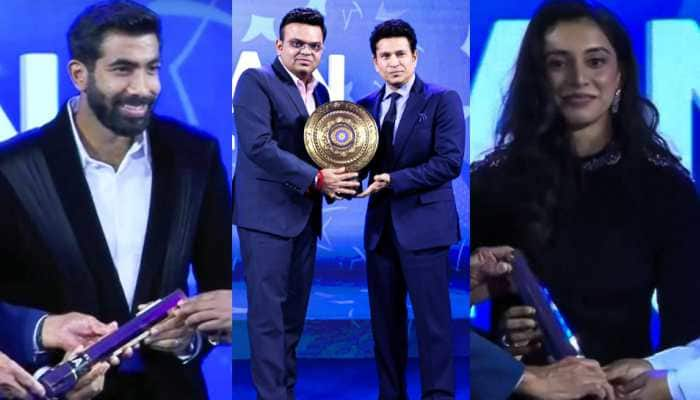Narendra Modi emerges from Rafale in better shape than Rajiv Gandhi from Bofors
The Rafale deal is not close to as murky as the Bofors scam. But, questions remain.
Trending Photos
)
When people ask me if the NDA government under Prime Minister Narendra Modi has done anything wrong in the procurement of Rafale fighter jets from France's Dassault, my typical answer is: "I don't think so, but...."
You may ask why the "but' -- and thereby hangs the tale of how to understand the purchase of military jets which has turned controversial with Congress president Rahul Gandhi accusing the BJP of corruption in the deal, though there is no evidence of payoffs at all. Compared to what happened in the Bofors arms purchase scandal in the late 1980s, the Rafale deal allegations look like a picnic. In the well-documented Bofors case, the very same Narasimhan Ram, the journalist at The Hindu who is now writing articles critical of the NDA government because it overruled dissent by defence ministry officials, was speaking of Swiss bank accounts and secret payoffs that pointed at the very least to a cover-up by the then Congress government under Rahul's father, the then Prime Minister Rajiv Gandhi.
But then, the problem is that the Rafale deal is a colourful one with circumstantial evidence pointing to unusual procedures that can be questioned on grounds of transparency. This is where we need a "But." The fact is that confidentiality is required in defence deals. The fact is that no less than the chief justice of the Supreme Court of India said he found nothing amiss in the confidential details of pricing involving the Rafale jets. The fact is also that the Comptroller and Auditor General of India (the institution that in the Bofors case criticised the Rajiv Gandhi government) has also said the Rafale deal value was cheaper than that negotiated by the UPA government led by the Congress.
But there are 'buts' still hanging in the air of New Delhi because the CAG is yet to pronounce its views on the controversial offset deal in which Dassault was left to choose its partner, which turned out to be the Anil Ambani-led Reliance ADAG group. The key point is that the government says it did not intervene in Dassault's choice of partner in which public sector HAL was pushed to the sidelines. The public sector is a holy cow in India and I do not rule out questions continuing to pour out on the issue. It is perfectly normal and acceptable for political bosses to overrule bureaucratic recommendations, as it has happened in the Rafale case, but in a politically charged atmosphere, questions do not go away.
The big questions: Is not intervening in the choice of offset partners by a government a good practice or not when the money in question goes out of the Indian taxpayer's pocket? In politics, sometimes, "not doing" is perceived as a form of doing (an error of omission) and this is what leaves Congress with one more round of ammunition that leads to a "but" being left open in the game.
Also, there is the nagging question of whether the rules of confidentiality applied by the NDA government will be employed by a future government formed by some other party or coalition to cloak things. In the Bofors case, there was a lot of attempted secrecy. The Rafale case sets a precedent that may worry long-term thinkers. How does one establish a technical difference between desirable confidentiality and undesirable secrecy? That is the source of another "But" on my part.
There is also the issue of whether there has been any "influence peddling" and "undue advantage" which are not exactly bribery in the conventional sense of the term but falls within the international lexicon of corruption.
The Anti Bribery Guidance website says 'influence peddling' occurs "when an undue payment or benefit in kind is promised or given to a person who has real or apparent influence on the decision-making of a public official with the intent that the person persuades the decision maker to act in a desired manner. The emphasis here is on 'undue' to distinguish it from legitimate influence seeking such as lobbying or advocacy."
In the coming days, some of the issues related to the Rafale deal will be examined from this point of view. You can say the deal is nowhere near the murkiness of Bofors, but then, this is not same India. New era decisions will face newer questions.
(Disclaimer: The opinions expressed above are the personal views of the author and do not reflect the views of ZMCL.)
Stay informed on all the latest news, real-time breaking news updates, and follow all the important headlines in india news and world News on Zee News.
Live Tv







)
)
)
)
)
)
)
)
)
)

